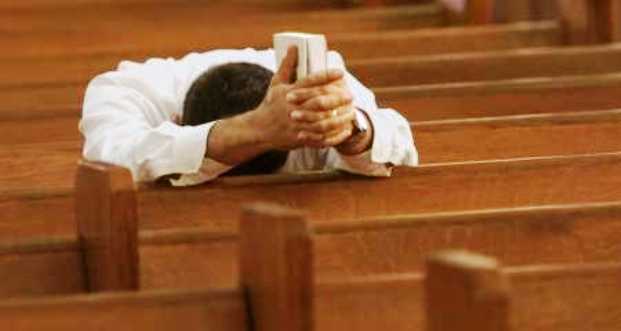Jesus Raised Jairus’ Daughter Back To Life

By Fr. Dexter Brereton
What is there of importance in our lives that needs to be raised to life?
[simpleazon-image align=”left” asin=”1938983602″ locale=”us” height=”375″ src=”http://ecx.images-amazon.com/images/I/41n8C8G-x1L.jpg” width=”249″]The story of the little girl raised from the dead reminds me of the tough early days in my last parish. I felt somewhat disorganized and it was very hard dealing with the distances and the driving, moving from one community to another. At one stage I forgot the Sunday mass for one community and was ‘bouffed’ (scolded) for it! As you can imagine it was not easy either getting accustomed to parishioners with a completely different culture from my own. It was during this time however that the Lord intervened in the form of a useful book by Stephen Covey entitled “The 7 Habits of Highly Effective People.” With the help of God’s grace, and of Covey’s theory I moved from a place where I spent a lot of my time ‘whining’ about the imperfections of people and the difficulties of the parish to a place where I acted ‘choicefully’ and ‘deliberately’ seeking to live out of the vision of the Church and priesthood which I held dear, even if on many occasions, people did not agree with or understand me.
I could describe the entire experience using the words of this passage. Like Jairus, I approached Jesus with my sorrowful complaint: “My little daughter is desperately sick. Do come and lay your hands on her to make her better and save her life.” This “daughter” of mine that was dead was my priestly zeal. There were negative voices inside me doubting that even the Lord could do anything in this parish: “Your daughter is dead: why put the Master to any further trouble?”…Then when Jesus came to my “house” (my heart) there was a lot of “commotion with people weeping and wailing unrestrainedly” – in other words, my heart was filled with a lot of “negative talk”, “whining” and self-pity. He said to ‘them’ “the child is not dead, but asleep.”
‘They’ laughed at him. I continued to doubt. I had ceased to see my situation as life giving. So Jesus encouraged me to ‘turn them all out’ and we entered the place where the child lay. He took her by the hand and said ‘Talitha kum!’ which means ‘Little girl, I tell you to get up.’ And she got up at once. Here I am touched by that beautiful phrase “he took her by the hand” Jesus made me take my problems and challenges ‘by the hand’ – in other words, I found that the book encouraged me to approach the challenges of my life with gentleness and wisdom rather than with passion, anxiety or rage. This phrase resonates in me as I think of people in many different kinds of circumstances who have to begin again, to ‘take their “little girl” (i.e. their problems) by the hand. Think for example of people in lousy marriages or dead-end careers. Very often the Lord’s advice may well be to ‘slow down’, to put out the negative voices in our hearts that are “weeping and wailing unrestrainedly” and begin again slowly and carefully from scratch. Even in the modern world, society continues to develop often in a direction that puts it at odds with the Gospel message. The Church, like a gentle mother or wise healer still has to gently take this world by the hand and speak to her with gentleness and love: “Little girl I tell you to get up.” She will not be served by looking down on the people in the world, becoming excessively aggressive or even pretending that she has all the answers.






